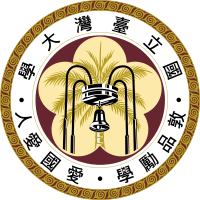Remarks from the Dean
The compartmentalized state of knowledge resultant from the increasingly sophisticated division of labor in knowledge production has been one of the most serious crises of our time. That the results of individual disciplines are not being effectively and timely shared by other disciplines often gives birth to arrogance derived from possession of specific knowledge, a mind-set that could either produce stagnancy in intellectual inquiry or, worse still, lead to Faustian pursuits. To pursue a more ideal milieu for knowledge production, then, requires an interdisciplinary approach for integrating the jigsaw puzzle of isolated intellectual endeavors. More importantly, we need accidental collisions and deliberate cross-breeding to infinitely expand and constantly synthesize this jigsaw puzzle into a comprehensive picture. But knowledge cannot be separated from life; otherwise, there is no way to merge the fragments into a whole and crystalize wisdom from knowledge. Thus, to contemplate life from the width of knowledge and the height of wisdom and to expand the scope of knowledge and fathom the depth of wisdom from the puzzles of life are the major tasks that we expect of this institute.



